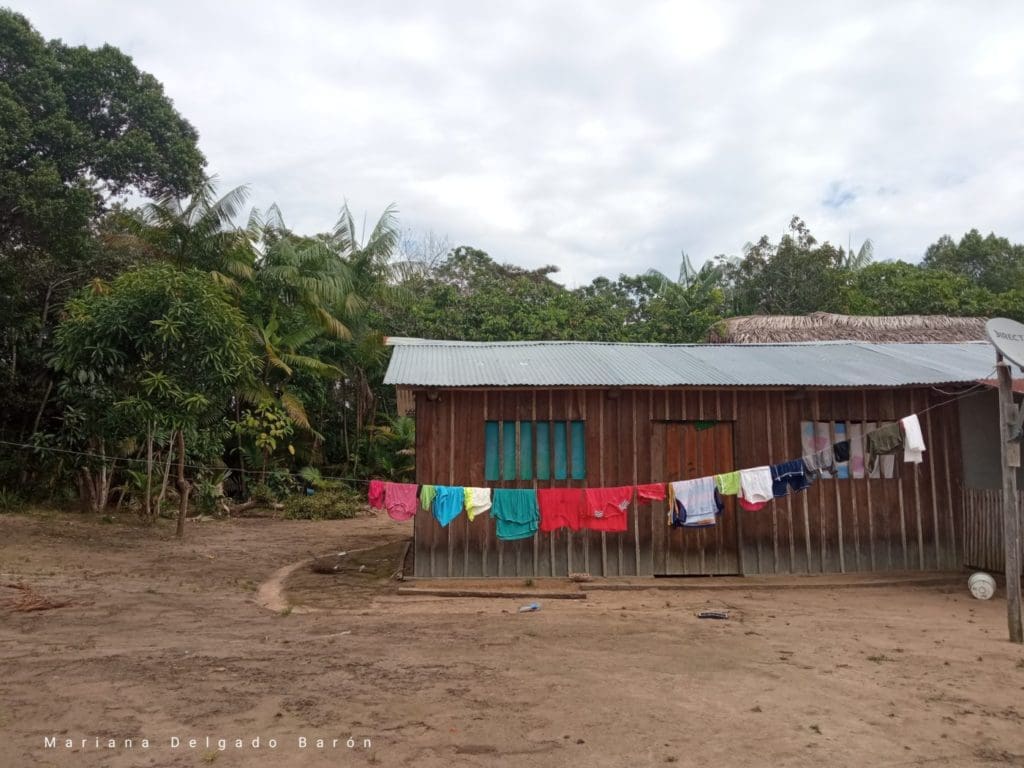Adventures in Rural Communities: Ecotourism Routes in the Interior Regions of Nigeria

Unearthing Nigeria’s Ecological Treasures
In the heart of Nigeria, a treasure trove of ecotourism routes awaits exploration. The interior regions, often overshadowed by bustling cities like Lagos and Abuja, are rich in natural beauty, cultural heritage, and unique experiences. Here, adventure seekers can connect deeply with nature while supporting local communities, offering a refreshing alternative to conventional tourism.
The Allure of Rural Nigeria
Rural communities provide a captivating glimpse into the authentic Nigerian lifestyle, distinct from the urban hustle that dominates headlines. Visitors can:
- Experience breathtaking landscapes: The majestic rolling hills of the Jos Plateau, adorned with expansive vistas, attract nature enthusiasts and photographers alike. The lush greenery of Cross River harbors picturesque waterfalls and serene rivers, perfect for hiking and exploring its wonders.
- Engage with diverse cultures: Festivals such as the Argungun Festival in Kebbi and the Osun-Osogbo Festival in Osun State celebrate the rich traditions and vibrant colors of local cultures. Visitors can immerse themselves in indigenous customs and sample culinary delights, like jollof rice or pounded yam, prepared with local ingredients.
- Explore rich biodiversity: Nigeria’s ecological variety is astounding, boasting wildlife such as endangered primates in the Gashaka-Gumti National Park and the African grey parrot in the tropical rainforests of Cross River. Birdwatchers and conservationists will find a treasure trove of species to admire.
These experiences not only promise adventure but also highlight the importance of sustainable tourism practices. By choosing to explore these routes, travelers contribute to the preservation of both natural and cultural resources, ensuring that future generations can enjoy Nigeria’s hidden wonders.
Why Ecotourism?
Ecotourism emphasizes responsible travel while fostering a deeper understanding of the environment. In this context, rural Nigeria presents numerous advantages:
- Support for local economies: Tourism generates income for communities, promoting sustainable livelihoods. Programs that train locals as guides or encourage artisanship contribute to economic stability, ensuring that profits remain within the community.
- Conservation efforts: Local organizations often spearhead initiatives aimed at protecting wildlife and habitats. For example, groups working in the Niger Delta are engaged in efforts to reduce oil spills and promote eco-friendly practices, safeguarding the environment for future generations.
- Education and awareness: Visitors learn about the intricacies of the local ecosystem and appreciate the interconnectedness of human lives with nature. Workshops on traditional herbal medicine and sustainable farming practices illustrate valuable lessons on coexistence with the environment.
With so much to offer, the adventures in rural communities await your discovery in the serene landscapes of Nigeria’s interior regions. Engaging in ecotourism not only enriches personal experiences but also plays a crucial role in the conservation of Nigeria’s diverse ecosystems and cultural heritage. Prepare for a journey that promises to be as enlightening as it is enjoyable, where each step leads to a deeper understanding of this vibrant land.

RECOMMENDED: Check out this similar article
Discovering Hidden Gems: The Routes of Ecotourism
The landscapes of rural Nigeria are a patchwork of ecological wonder and cultural richness, promising exceptional adventures for the curious traveler. From the rolling hills of the Jos Plateau to the pristine environments of Cross River, ecotourism routes weave through breathtaking terrains that beckon exploration. Each site offers a unique experience, ensuring that adventurers can connect with nature while immersing themselves in the local way of life.
Itinerary Ideas: Must-Visit Ecotourism Routes
For those looking to traverse Nigeria’s interior regions, several ecotourism routes stand out as must-visits, offering a blend of scenic beauty, wildlife encounters, and cultural richness. Here are a few noteworthy routes:
- The Gashaka-Gumti National Park: Located in Taraba State, this park is Nigeria’s largest national park, serving as a biodiversity hotspot. Home to various species of primates, birds, and elephants, it offers hiking trails through lush forests where adventurous souls can embark on guided tours led by knowledgeable locals.
- The Obudu Mountain Resort: Situated in Cross River State, this resort boasts a cable car ride that gives breathtaking views of the surrounding hills. Eco-friendly activities include hiking to waterfalls, birdwatching, and visiting the local cattle ranch, all while ensuring that tourism benefits the native communities.
- The Ogbunike Caves: This UNESCO World Heritage site in Anambra State features fascinating limestone caves and a stunning nature trail. Visitors can learn about the cultural significance of the caves to the indigenous communities and participate in workshops on traditional crafts.
- The Lekki Conservation Centre: Just a stone’s throw from Lagos yet nestled in nature, this conservation center provides an opportunity to walk along the longest canopy walkway in Africa, allowing visitors to engage with the area’s rich biodiversity while learning about local conservation efforts.
As you explore these routes, being mindful of the environment and promoting responsible travel practices can help safeguard these breathtaking landscapes for future adventurers. Engaging with local guides and participating in community-led initiatives not only enhances your experience but also aids in preserving the natural resources and cultural heritage of Nigeria.
Connecting with Nature and Culture
Beyond natural beauty, the essence of ecotourism in rural Nigeria is deeply rooted in the engagement with local cultures. Travelers have the unique opportunity to participate in traditional festivals, observe age-old rituals, and enjoy the warm hospitality of the communities they visit. Each interaction provides valuable insights into the local lifestyle, reflecting Nigeria’s diverse ethnic tapestry.
As adventurers set their eyes on these rural ecotourism routes, they will find more than just picturesque landscapes; they will immerse themselves in a journey that intertwines adventure and learning. Such experiences not only strengthen the bond with nature but also promote sustainable practices, making every expedition a step towards a more tranquil and connected world.
| Advantage | Description |
|---|---|
| Sustainable Economic Growth | Ecotourism promotes local businesses, providing incomes for artisans and farmers while reducing poverty. |
| Cultural Preservation | Through ecotourism, traditional practices and local customs are showcased, fostering appreciation and continuity of heritage. |
The theme of “Adventures in Rural Communities: Ecotourism Routes in the Interior Regions of Nigeria” sheds light on the dynamic interplay between tourism and environmental sustainability. As travelers seek more authentic experiences, ecotourism routes emerge as vital pathways that allow visitors to connect with the rich culture and natural beauty of rural Nigeria. Engaging directly with local communities, tourists can not only savor breathtaking landscapes but also actively contribute to the preservation of unique ecosystems.Moreover, these rural initiatives serve a dual purpose; they open new avenues for engaging with nature while ensuring that the economic benefits flow back into the communities. Visitors can enjoy enriching experiences that include participating in agricultural activities or wildlife conservation, thereby supporting vital sustainability initiatives. The routes are often designed to minimize environmental impact, further aligning with global ecotourism principles.As interest grows in these ecotourism routes, so does the opportunity for local empowerment, making them not just a means for adventure, but a collaborative effort towards ecological balance and cultural resurgence. The potential for an eco-friendly vacation that also supports local artisans while immersing oneself in stunning landscapes is indeed a compelling reason to explore these rural regions.
SEE ALSO: Click here to read another article
Engaging with Local Communities: A Transformative Experience
One of the pivotal elements of ecotourism in the interior regions of Nigeria is the deep engagement with local communities. This interaction offers travelers an authentic glimpse into daily life in rural Nigeria, where traditions and customs are intricately woven into the fabric of the society. The local populace, often welcoming and eager to share their way of life, invites visitors to partake in various community activities, enhancing the travel experience with a sense of belonging and purpose.
Community-Led Initiatives: Ecotourism with Impact
Numerous rural communities are championing the cause of community-led ecotourism initiatives. These programs not only focus on conservation efforts but also empower local populations through sustainable practices. For instance, in communities surrounding the Kogi-ankpa State Forest Reserve, residents have established eco-friendly lodges that offer guests a genuine rustic ambience. Here, visitors can partake in sustainable agricultural practices, learning from local farmers about organic farming and the importance of preserving indigenous crops.
Participating in these community initiatives allows tourists to contribute directly to the local economy, fostering a sense of responsibility towards the environment and the people. Initiatives like these have proven to significantly improve community livelihoods while ensuring that cultural heritage and natural resources are preserved for future generations.
Authentic Culinary Experiences: Savoring Rural Flavors
No journey through Nigeria’s rural landscapes is complete without indulging in the local cuisine. Ecotourism exposes travelers to authentic culinary experiences that go beyond mere food; it opens a window into the history and traditions of the community. From jollof rice to ofada rice paired with delicious stews, each dish carries a story. Culinary tours can be arranged in many ecotourism hotspots, allowing guests to participate in cooking classes and learn the art of preparing traditional dishes using locally sourced ingredients.
Moreover, rural farmers provide fresh produce for these culinary adventures, reinforcing the importance of supporting local agriculture. Such experiences can also involve food festivals where visitors can taste an array of dishes while enjoying performances of traditional music and dance, allowing travelers to engage with the vibrant culture of the region.
Challenges and Sustainable Practices
While the potential for ecotourism in rural Nigeria is vast, it is not without its challenges. Issues such as inadequate infrastructure, environmental degradation, and cultural dilution can pose threats to the sustainability of ecotourism. However, many communities are adapting through innovative approaches. For instance, local organizations are actively working on sustainable land management practices, educating both residents and visitors on the critical need for conservation.
Ecotourism in Nigeria’s interior regions shines a light on the potential for travelers to become agents of change. By advocating for responsible travel and participating in conservation efforts, adventurers can help create a positive impact. Engaging with local initiatives that focus on sustainability not only enriches the traveler’s experience but also inspires communities to preserve the very essence of their heritage and environment.
As Nigeria continues to develop ecotourism routes, the enchanting landscapes and rich cultures await the curious traveler, ready to share their stories and experiences through shared adventures. The promise of connection and discovery in these rural communities makes any visit unforgettable and worthwhile.
RECOMMENDED: Check out this similar article
Conclusion: The Future of Ecotourism in Nigeria’s Rural Communities
In summary, the adventures in rural communities across the interior regions of Nigeria present a unique opportunity for travelers seeking meaningful experiences. The rich tapestry of local cultures, combined with sustainable practices and community engagement, not only enhances the travel experience but also plays a vital role in the preservation of cultural heritage and the environment. From engaging directly with local farmers to savoring authentic culinary delights, visitors can immerse themselves in the vibrant lifestyle of rural Nigerians.
The rise of community-led ecotourism initiatives demonstrates a proactive approach to not only enriching the local economy but also promoting conservation efforts. It embodies the essence of tourism that fosters responsibility towards the environment and empowers communities. The collaborative spirit between travelers and locals creates a powerful platform for cultural exchange and sustainability that has the potential to redefine tourism in the region.
However, as we look to the future, it remains essential to address the underlying challenges faced by these communities—from infrastructure deficits to environmental threats. By choosing responsible travel and supporting grassroots initiatives, adventurers can contribute to a brighter and more sustainable future for these rural areas. Ultimately, the enchanting landscapes, diverse cultures, and the promise of transformative experiences invite both locals and visitors to explore and celebrate the natural beauty and rich traditions that Nigeria has to offer.
The thrill of adventure awaits in these underexplored destinations, beckoning all to embark on a journey that goes beyond mere sightseeing—enabling a shared connection to the heart and soul of Nigeria’s rural communities.


